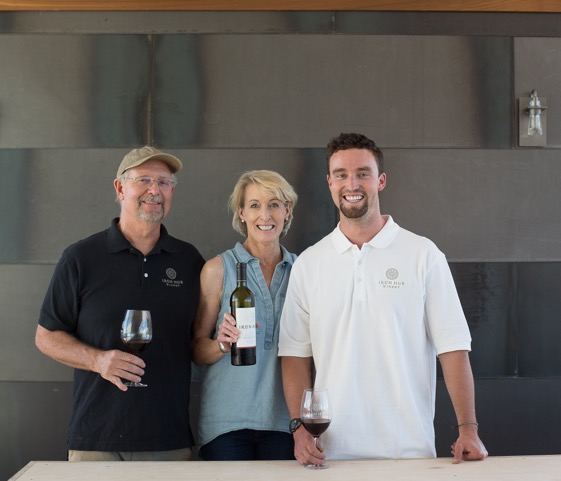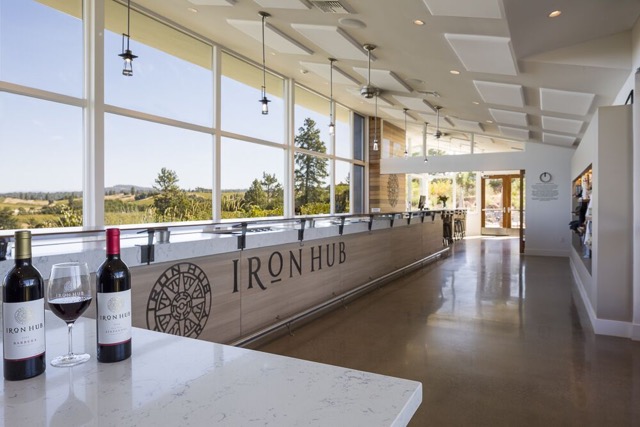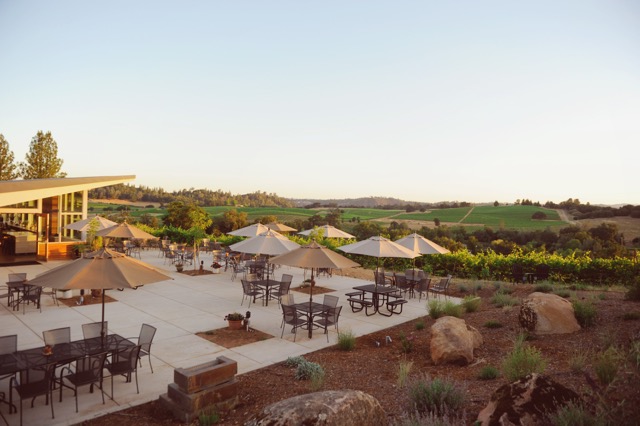“The tannins are softer here, the wine making process is easier,” and Iron Hub’s hillside location and 1,700 foot elevation is up to the task of quickly drying out from winter rainfall. Having made 23,000 cases per year, with little help at Lava Cap, Iron Hub’s current production – just 3,600 cases – gives the winemaker the ability to lovingly craft wine, not just mass produce it.
Respected Wine Critic Mike Dunne, who spent 30 years at The Sacramento Bee as a wine columnist, says Jones has made a graceful transition from Lava Cap in El Dorado County to Iron Hub in Amador.
“Taking on new soils, a new elevation and new varietals with studious attention to detail. At Lava Cap, Tom developed an enthusiastic following for cabernet and chardonnay, varieties that have struggled in the heat of Amador County, though he continues to turn out a strapping chardonnay with El Dorado fruit.”
At any one time, Iron Hub features a baker’s dozen of fruit forward, balanced wines for purchase. Dunne says Jones works with what he has, turning out solid Amador stalwarts like Zinfandel, Sangiovese and Bar-bera, while also embracing newcomers like Semillon and Grenache, and making good use of a rare grape on the Iron Hub property.
“Tom’s flagship wine ‘Resolute’, is based on Aglianico, which he is helping revive in the foothills.”
Dunne admires the winemaker’s blending skill as well.
“He is a keen blender. When sensing shortcomings or hollows in varietal wines, he can move smartly to compensate for them, with imagination and detail,” enhancing “an already reliable, elegant, spicy Clock-spring Zinfandel by adding Sangiovese in one vintage, Barbera in the next.”
Making, well-balanced, ready-to-drink wines alone is not the key to success.
The couple complement each other perfectly for their boutique winery. Tom says “Beth is extremely creative, and it’s a joy to be a part of that, we wanted to do this together.”
While Tom is more comfortable in the barrel room than the tasting room, Beth, a retired child psychologist, is quite comfortable with adults, especially a growing contingent of Wine Club members, who get treated to more than just a hefty discount for their quarterly loyalty and investment.
“Every event we do,” Beth says, “we include some educational event. Beyond barrel tasting and food pairing, it might be a sensory experiment. People enjoy it and it’s fun.”
As owners of a privately held venture, the couple is not compelled to report their financial data. Simple math – 3,600 cases of wines priced in the $25 to $28 range — suggests Iron Hub’s moving $1 million or more of fine wine each year. And with wine club, event and merchandise sales factored in, the couple’s business plan is clearly working, “40 percent above where we’d hope to be,” Tom says.







No comments